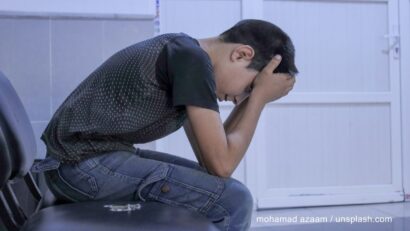Psychological first aid: the immediate reaction that can change the trajectory of a personal crisis
Psychological first aid is a punctual intervention, a set of simple but essential actions, offered to people in situations of emotional crisis.

Iulia Hau, 16.07.2025, 14:00
Psychological first aid is a punctual intervention, a set of simple but essential actions, offered to people in situations of emotional crisis. It is meant to prevent and alleviate human suffering through an empathetic and immediate response to those affected by trauma, disasters or conflicts. Over the last three years, the Romanian Red Cross has built a network of over 1,900 people trained to provide immediate emotional support in emergency cases.
Alina Gârleanu, the manager of the Red Cross’s psychosocial support and mental health program, explains what psychological first aid actually is and how this program started in Romania:
“It is about the response to the conflict in Ukraine, and the European Commission and neighboring states were invited through the national Red Cross society to provide a response in support of the people who were crossing in massive numbers. You know that there were enormous waves, tens of thousands of people crossing the border every day. And one of the desired responses based on the experience of the national Red Cross societies was to provide emotional support. Technically, it is called psychological first aid and it is this first contact you have with a person who is in a difficult situation. That is how the project started in 2022, it had already started in June, but it took, at least for us, for the Romanian Red Cross, several years to develop our capacity and now, drawing the line, in all the counties of the country or at the national level, we have over 1,900 people who are trained to provide this emotional support, this psychological first aid. But it was a long road, so to speak. And also, we have 80,000 people, I mean Ukrainian refugees, who were provided with punctual psychological first aid.”
Psychological first aid is intended for people in crisis situations, whether an external, macro crisis – such as that generated by a natural disaster or an armed conflict that generates a wave of refugees in difficulty – or a personal situation, such as the loss of a loved person.
The Red Cross representative explains that this type of intervention means being there, present for the person in difficulty, listening empathetically and making them feel safe:
“It is the first contact with the person, we help them regain their state of calm, we see what their immediate needs are, what their concerns are and what they need at that moment. It can also be something concrete: a bottle of water, a blanket, or information. And information is part of the psychological first aid. Because there are three principles in psychological first aid: it is called looking, meaning you look at who needs it, what exactly they need, before you come into contact with the person. The second area is the listening area, in which you approach the person, introduce yourself, see what their difficulties and concerns are at the moment. And then, in the third part, beyond what help you can provide on the spot, there is also the area of correlating, or passing on, putting in touch with other institutions, organizations, emergency services, services that provide the things the person needs. So it is something very punctual, very targeted and that covers most of the things that a person, a family, faces in that situation.
People are trained to provide help during three modules. The second module includes a series of practical exercises and concrete scenarios practiced over eight hours, says the interlocutor, who explains the purpose of the third module:
“In the third module, we do this to support the children. Because a different approach is needed for children compared to adults, or in general. And it is approached in the context of the presence or absence of a parent or legal representative. Because there can also be children in crisis situations or, there have been unaccompanied children who crossed the border. For example, there can be children separated, in the event of an accident or in the event of a disaster, from their parents. And you realize that there are some very specific aspects to address there. Of the 1900 people trained to provide this help, 1200 are volunteers and 700 are professionals, i.e. teachers, medical staff from various services, and social workers. They represent people from the communities served by the Red Cross, which makes the training and experience gained over the past years a benefit for the communities. The main beneficiaries of this program have so far been Ukrainian refugees and victims of armed conflicts in the Middle East (such as Gaza). The organization is currently preparing for post-disaster intervention in the event of natural disasters, such as floods or major earthquakes.”
The expert believes that, although less than before, there is still stigma and resistance to accessing emotional and psychological support services. However, the help provided to a person in the immediate period after the onset of a crisis decreases the likelihood that that person will face other problems later.
(LS, CC )






























